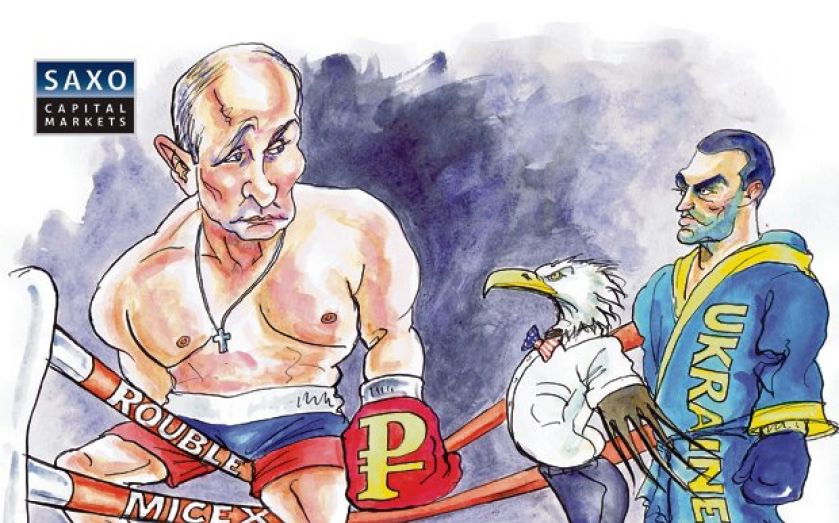Ukraine will only be the start

Traders set to increasingly feel the pinch from flare-ups in petro-states
FOR ANY traders not paying close attention to energy markets, recent events will have come as a rude awakening. Brent crude shot up from just above $104 per barrel in February to over $109 at the end of last week, while energy firms embroiled in the Russia-Ukraine crisis have seen their shares tank. Gazprom hit a 2014 high of 152.75 roubles in mid-February, before crashing to current levels around 129 roubles.
The crisis has ripped through other markets too. The yen has strengthened, and Germany’s DAX index suffered its biggest one-day fall since the height of the Eurozone crisis as investors sold off companies vulnerable to a possible Russia energy supply shock.
But the Ukraine crisis could be just the tip of the iceberg. Global energy markets are undergoing a profound restructuring; as Eurasia’s Ian Bremmer has argued, these shifts are reshuffling the deck of geopolitical winners and losers. And how the cards fall will shape the future of business and financial markets.
Saudi Arabia and Russia currently produce the largest volumes of crude oil, at 13.1 and 12.6 per cent of the global market respectively. But with the US entering the fray as a new petro-state, alongside Iran, the International Energy Agency (IEA) sees brent crude falling to $92 per barrel in 2017, from over $109 today. US companies have gained a renewed swagger from cheaper shale energy at home, while promising energy reforms in Mexico should see it shoot up the table of producers, boosting competitiveness and growth. If Nigeria can pull off the same trick with its oil markets, analysts see that African economy benefiting hugely as well.
Yet alongside this sits the likelihood of more volatility. Mohamed El-Erian of Allianz SE has warned that while future geopolitical shocks may be small, on aggregate they will play a more substantial role in the global economy in coming years. And while the market share of the Opec oil cartel will wane, its ability to disrupt energy markets remains. Saudi Arabia, for example, relies on an oil price of around $100 to balance its budget, and the chance of a flare-up in tensions between it and a more assertive Iran only looks set to increase.
HOW TO JOIN THE TRADING DEBATE
The Future of Trading, an event by Saxo Capital Markets, brings together leading analysts to debate a paradigm shift in the world of trading. Considering topics like social trading, crypto-currencies, and energy and geopolitics, participants will discuss how the democratisation of trading has levelled the playing field.
The event will be held on 30 April 2014, from 2pm to 6pm, at the British Museum, London WC1B 3DG.
To sign up, visit: www.tradingdebates.com